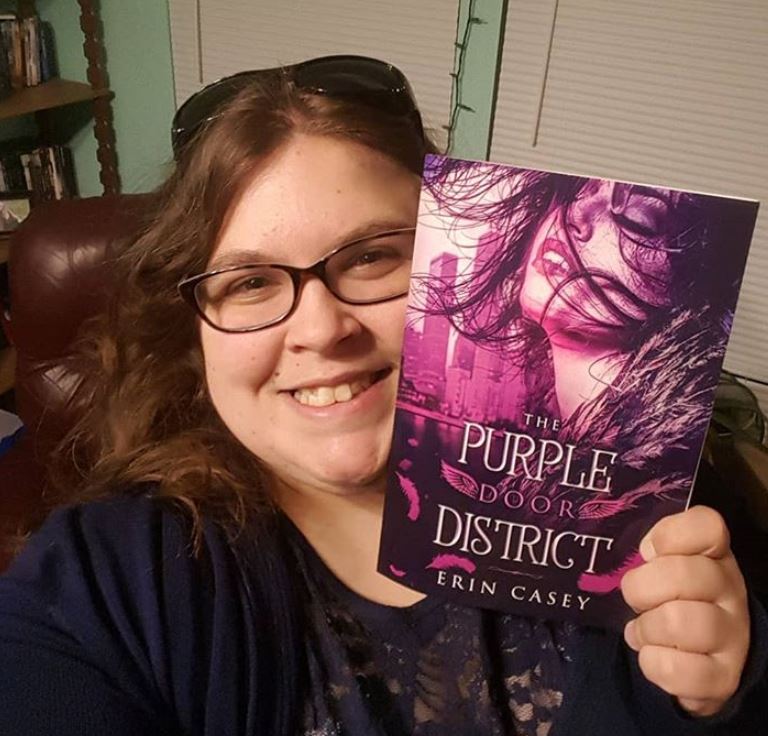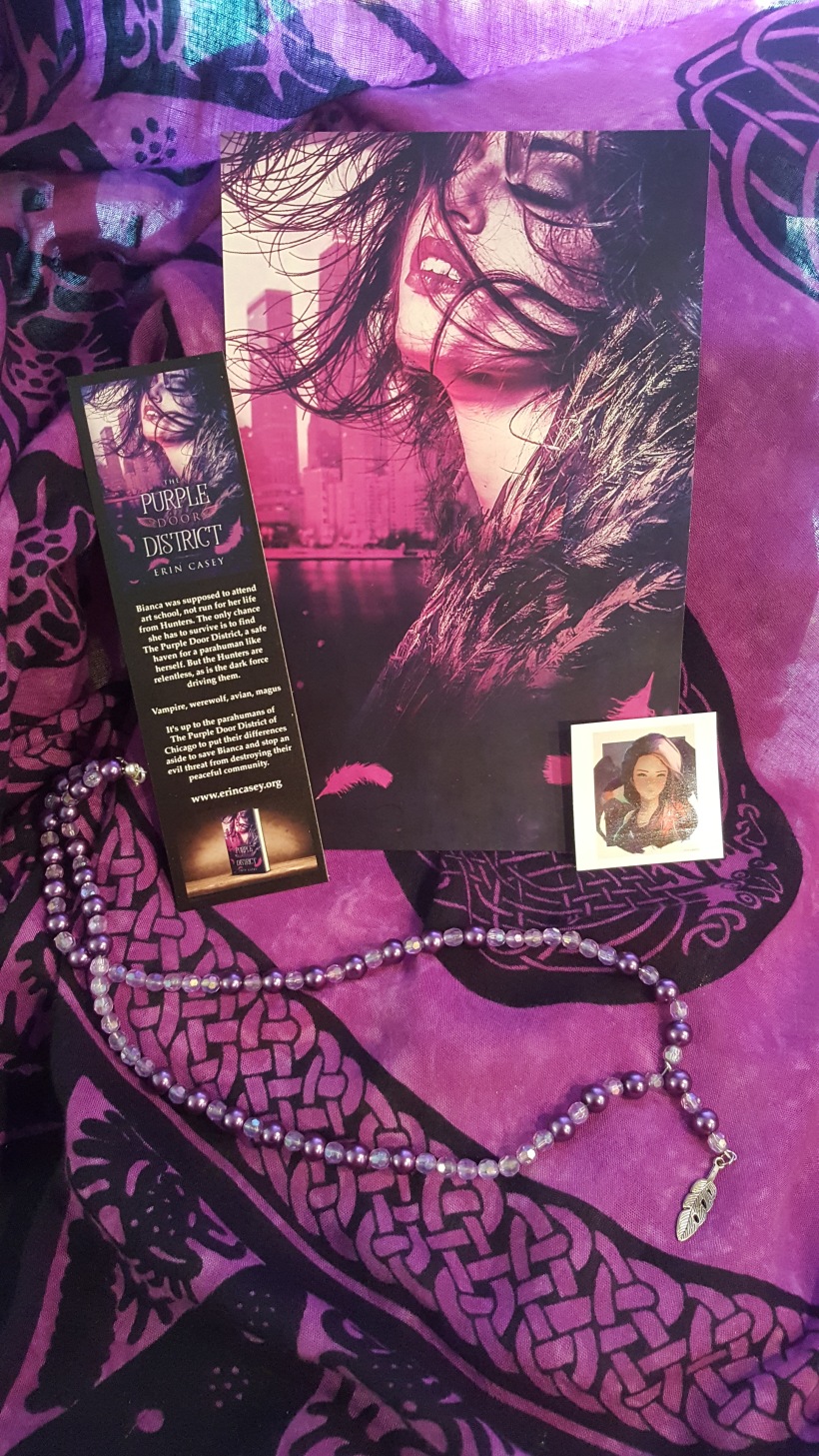As writers, we constantly hear how we need to have an online presence. Whether it’s Facebook, Twitter, Instagram, Snapchat, Goodreads, Tumblr, etc., the more people we can connect with, the better our book sales. But exploring pages and finding a writing community can be difficult when you don’t know where to start, or you’re introverted like I am. So I’ve compiled a list of my top 10 favorite writing Facebook Groups/Pages that have helped me find a community, get published, create a marketing plan for myself, and much, much more.
1. Write.Publish.Sell: Created by Alexa Bigwarfe, Write.Publish.Sell is an excellent place to go if you’re trying to figure out how to publish your manuscript from the ground up. She describes it as, “a place for writers who need help and support with writing, publishing, and marketing your book.” Bigwarfe provides tons of tutorials, posts, and other resources on her website, where one of my own blog posts appears. Her group also posts daily encouragements or prompts Monday-Friday: Monday Blogs, Tell Us Tuesday, Wednesday Promo, Ambassador Tips Thursday, Friday Social. It’s a fantastic way to connect with other authors, learn about them, promote your books or blog, and get help with your writing. She has paid services through her website, too, if you need more than what her free help can offer.
Bigwarfe’s knowledge and connection with authors has also helped her create the Women In Publishing Summit which runs from March 2-8, 2020 this year. The first online writing and publishing conference dedicated to women, the Women in Publishing Summit is a FREE 5-day online conference, featuring over 40 authors, publishers, editors, graphic artists, marketers, book sellers, mindset coaches, & more! You can register through the event here. I’m one of the speakers this years, and you’ll get to learn all about how to find writing contests. Seriously, it’s a great resource.
2. Socially Aware Fiction Writers: Created by Yukimi Wintel, this group is “for people who love writing imaginative fiction and want to make sure they are being representative without being offensive.” While the page is geared more towards fantasy and sci-fi, writers of other/multiple genres are welcome to participate if they have questions. I’ve discussed many times how it’s important to have a sensitivity reader if you write about characters outside your lane. This is one place to turn to, and you don’t have to be afraid to ask questions. Just be willing to be open minded about the responses. I love this page because they actually helped me better develop my character Shen Yanlei in Wolf Pit. Now, keep in mind, this is just one form of research you can do when writing about diverse characters. Be kind, respectful, and understand that when you ask a question, you may be surprised by the answers.
3. The Mixtus Media Meet-Up / Mixtus Media: This has been one of my go-to sites since I first started promoting my Purple Door District series. Created by Jenn Hanson-dePaula and Marcus dePaula, Mixtus Media focuses on helping “authors navigate book marketing with a simple personalized process that works.” They post blogs on Instagram and Facebook that I have found invaluable during my marketing process. I actually originally found them on Instagram. They cover tons of marketing topics such as, “How to Market Your Book if You’re an Introvert,” “One Month of Instagram Posts for Authors,” “How Authors Can Consistently Sell Books- Even after the Release,” “70 Conversation Starters to Boost Social Media Engagement,” and more. Their site is what inspired my blog entry “Engaging Your Readers.” All their material is free, but as with Bigwarfe, they do provide paid services as well.
4. Fiction-Atlas Author Builders and Promotions: Do you want to build your newsletter audience and meet new readers? This is the place to go. Created by C.L. Cannon, this group “is specifically for promotions and builders offered by” Cannon “and Fiction-Atlas Press.” These builders include Newsletters, Bookbub, Instagram, Twitter, Facebook likes, etc. She’s constantly running these events to help authors grow their reader base. In the past year of working on just a few of these builders, I’ve gained 2,000 people on my newsletter! And the best part is that they’re reasonably priced, coming in anywhere between $10 and $20 depending on how much information you want to promote yourself. Cannon also runs Fiction-Atlas Press LLC and has published several incredible anthologies. I was in her “Unknown Realm” book last year. She has two more anthologies open this year which you can find under Submissions. She’s currently accepting pieces.
5. The Otherworld Home Community: Created by Tamara Rokicki, The Otherworld “is a growing platform in the literary community. Serving as the main hub and home center, it hosts portals that facilitate members into reading and writing worlds.” I’ve been part of this group since near the beginning, and I’ve met many fantastic authors. The Otherworld has released three anthologies and hosts a Book of the Month group where readers can talk about the book together and win prizes. Rokicki has also put on several amazing launch parties that have helped authors promote their books while also showcasing the upcoming anthology. I was recently selected as a resident author, and I can tell you we have some fun plans for the future.
6. Indie Author Book Expo: Need a way to set up signing events? Then you should definitely check out IABE! Created by Jenn Thompson, IABE is a “nonprofit devoted to uniting readers, writers, and authors to build better books.” The daughter group IABE Must Have Books! allows you to promote your novels. Thompson works tirelessly to create signing events for local authors around the Midwest. She started in Des Moines and is booking events in Mason City, Peoria, Chicago, Omaha, and hopefully even more to come! She’s a friend to authors and brings writers together through her site. She’s also published anthologies and is trying to get a printing press to help make publication easier for writers.
7. Rising Tide Publications: I’d be remiss not to mention this group created by Brian K Morris who has become a mentor to me. He encourages authors to lift one another so we all rise together, an ideology that I can get behind. His mission is to “provide positive entertainment in books and comics and to provide assistance to other creatives with low/no-cost solutions whenever possible, and encouragement always.” He runs two live shows every week where you can promote your books and get to meet other authors. If you have a fundraiser or book event happening, he’s one of the first to promote it. He’s never afraid to offer advice and a kind ear.
8. The Writers’ Rooms: Of course I need to mention the Writers’ Rooms. The Writers’ Rooms is a non-profit corporation that focuses on providing a free, safe environment to all writers. Essentially, we’re writers helping writers. In Iowa, we provide two-hour sessions that include a literary lesson and an hour of writing throughout the month. You can find multiple groups through The Writers’ Rooms Facebook page based on different genres like Fantasy/Sci-fi, Poetry, Horror/Mystery, All-Genre, Romance, and also LGBT-based groups. We have a big author signing event happening later this year (applications are now open) and we produce anthologies for Iowa writers. As the Director of the organization, I try to provide helpful information to our group members and other authors through the main page. And what you can’t find there, you can usually find contests, events, and more in our individual groups.
9. The Iowa Writers’ House: Founded by Andrea Wilson, The Iowa Writers’ House is another incredible organization with the mission to “provide writers with the support and necessary tools to bring their literary dreams to fruition. From lectures and inspiration, to first putting pen to the page, to seminars on tips and how-to’s for the publishing world and everything in between, the Iowa Writers’ House exists as a writing launchpad for all who seek it.” IWH has consistently put on fascinating workshops hosted by published authors and professionals. Writers from all around the US have come to learn the tools of writing and build a literary community. You can check out workshops here. More recently, they have hosted a residency for Bicultural & Immigrant Writers in Iowa, publishing and distributing their voices through anthologies titled We the Interwoven. If you ever have questions, you can always ask me since I’ve been a volunteer practically since the beginning.
10. Fantasy Writers Support Group: Founded by Beth F Brownell, the Fantasy Writers Support Group is exactly that, a group “designed to assist authors in writing.” It’s a great way to find support for fantasy writers. You can ask questions, they provide tips, promotions, display book covers, allow you to discuss the world you’re building, etc. They have specific rules about when to post things, so make sure you check out their about page. If you’re a fantasy writer, this is one you’ll want to follow.
I hope that these groups and pages help you find more ways to show off your writing, learn literary tips, and meet fellow writers and readers. I’m considering creating a group myself to help other writers. What things do you look for in writing groups/pages?














